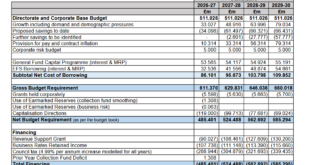A union representing Rolls Royce workers has rejected the offer of a £2,000 one-off payment offered by the firm to help staff with the rising cost of living.
Of the 14,000 staff at Rolls Royce who were eligible for the payment, 11,000 members are unionised.
The payment was intended for junior management and shop floor staff.
Unite said the offer “falls far short of the real cost of living challenges which our members are experiencing.”
The lump sum was due to begin being rolled out in August, starting with the 3,000 non-unionised staff before being paid to the remaining 11,000 unionised workers.
Unite’s regional secretary Paresh Patel said the union was still in negotiations with Rolls Royce about the pay offer.
The pay offer was revealed on Monday night and later confirmed by Rolls Royce.
“The fact that Rolls Royce has made this announcement in the manner that it has certainly undermines the trade union and the negotiating position that should be between the employer and the unions on this matter,” Unite said.
Rolls Royce had also offered employees a 4% pay increase retroactive to March. A Rolls Royce spokesperson told the BBC that it would be the “highest annual pay rise in at least a decade” for shop floor employees.
However, Unite stated that it would also reject the offer of a 4% pay increase.
According to a Rolls Royce spokesperson, there are ongoing discussions with unions about a pay settlement for 2022-2023, and the cost of living issue will be a factor in those negotiations.
Meanwhile, approximately 115,000 Royal Mail employees are voting on strike action in a similar pay dispute.
The Communication Workers Union (CWU), which represents many Royal Mail employees, announced that it would seek a “inflation-based, no-strings pay award,” saying that Royal Mail’s offer of a 2% pay increase was “miles away from where inflation is, totally inadequate.”
Lloyds Bank announced measures to help employees cope with rising costs earlier this month, as energy bills continue to rise and UK inflation hits a 40-year high of 9%.
Source link


